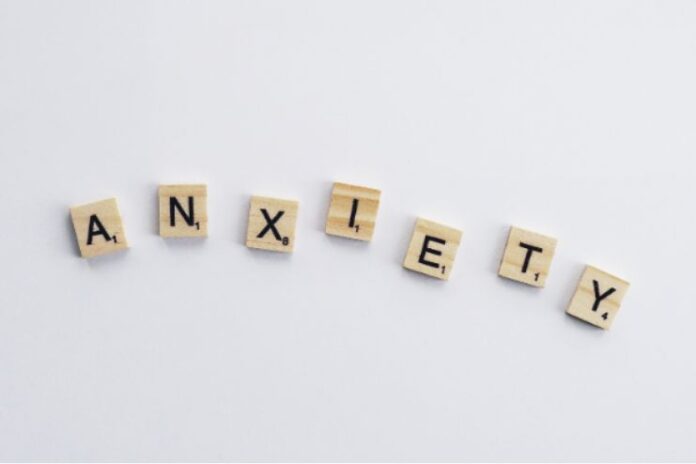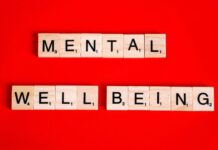Affiliate Disclaimer
Some links in this article are affiliate links. We may earn a small commission if you make a purchase through these links, at no extra cost to you. We only recommend products we find useful to our readersEveryday stress and clinical anxiety often get grouped together, much like confusing a regular headache with a full-blown migraine. Both share similar symptoms but are hugely different in seriousness and impact. It’s a common mistake one can make, leading to either unnecessary panic or not paying enough attention to an actual mental health concern.
Feeling anxious before a big event, such as an important interview or exam results, is acceptable. You might experience a racing heart, sweaty palms, and restlessness in these situations, which is normal. But when these feelings become persistent and overwhelming and start interfering with daily life, it’s no longer just typical stress; it can mean you suffer from anxiety disorder. When we understand the difference, seeking support and addressing these issues is easy.
For people suffering from anxiety, it is not a temporary concern but influences daily actions, resulting in a significant amount of fear in life. Anxiety disorders take many forms, ranging from common phobias and social anxiety to more complex generalized anxiety disorder and obsessive-compulsive disorder (OCD). Each kind offers its own set of difficulties and must be identified and treated with professional advice. In this article, let us understand the signs and symptoms of anxiety disorder to know if you’re suffering from the same.
Read More: What Is High Functioning Anxiety: Signs You May Be Overlooking.
Anxiety Disorders: Symptoms, Types, and Effects
Anxiety disorders are psychological conditions that result in constant fears, worries, and stress. These fears can dramatically affect your daily functioning, and you may feel that seemingly ordinary tasks are overwhelming. If left untreated, anxiety disorders can cause significant physical, emotional, and behavioral problems.
Anxiety Disorder Symptoms:
Anxiety can be exhibited in various ways, affecting the body, mind, and behavior:
- Physical symptoms: Sweating, trembling, rapid heartbeat, dizziness, nausea, shortness of breath.
- Mental Symptoms: Chronic, distressing thoughts, panic attacks, irritability, fatigue, difficulty concentrating.
- Behavioral Symptoms: Avoidance of anxiety-provoking situations, hypervigilance, flashbacks to traumatic events.
Types of Anxiety Disorders
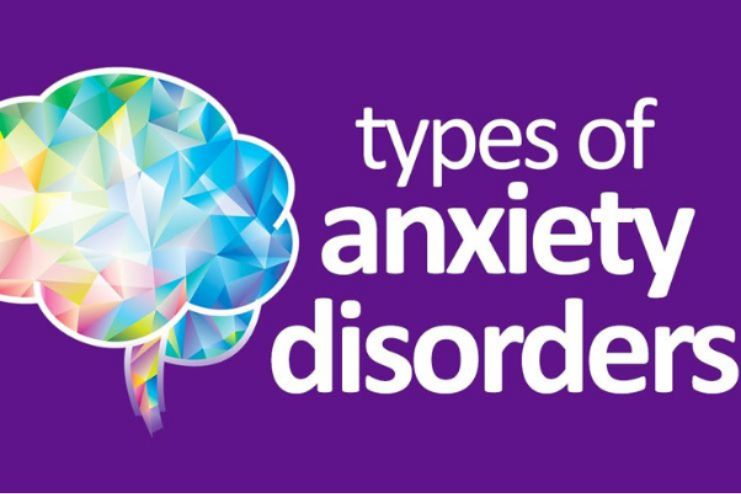
Anxiety disorders can take on several different forms, each with its own specific traits:
- Generalized Anxiety Disorder (GAD): GAD is an excessive, constant worry about everyday things that bother you without any apparent cause or reason.
- Panic Disorder: You panic when facing episodes of intense terror or fear. These are panic attacks that come suddenly, and are situational.
- Social Anxiety Disorder: Fearing social situations and interactions with people leads to avoidance. This is when you are suffering from social anxiety disorder.
- Phobias: Certain specific objects or situations can cause intense, irrational fears in you.
- Post-Traumatic Stress Disorder (PTSD):PTSD is an anxiety disorder that develops after experiencing or witnessing a traumatic event.
Understanding these symptoms and types of anxiety disorders is the first step toward seeking proper support and treatment. With the right treatment and strategies, we can effectively manage anxiety disorders, and improve our overall mental wellbeing.
Read More: 15 Ways To Deal With Crippling Anxiety – Know How To Stop.
How Do You Know You Are Suffering From Anxiety Disorders?
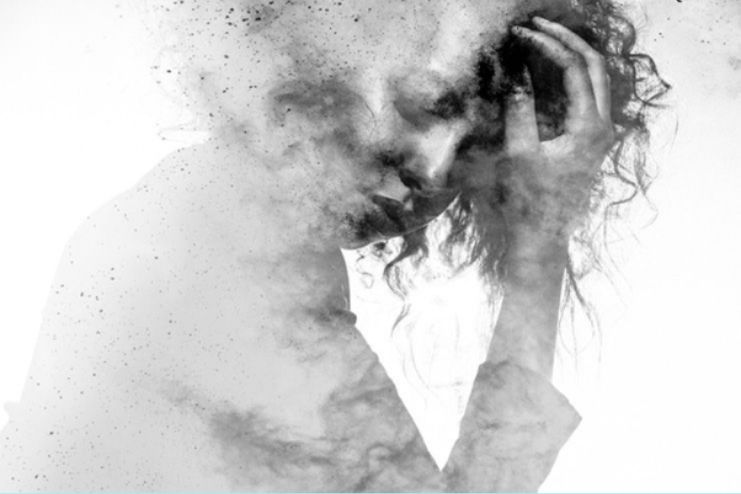
Anxiety disorders are characterized by chronic symptoms impacting one’s day-to-day activities.
Some of the common anxiety disorder symptoms include:
1. Constant Worrying:

Do you often find yourself worrying without a clear reason, frequently jumping from one concern to another without focus? If this pattern continues, you may become mentally exhausted and physically tired over time. This stress can also lead you to engage in unhealthy habits like drinking or smoking. Recognizing these habits early on is essential for managing anxiety effectively.
2. Insomnia And Sleep Disturbances:
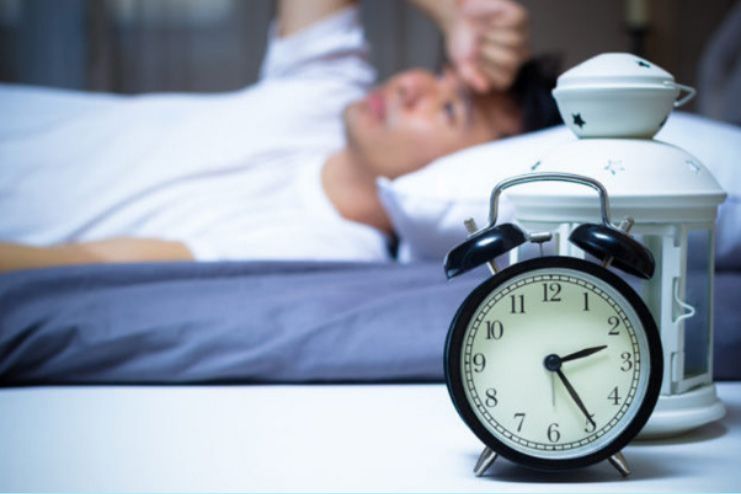
Insomnia is a significant symptom of anxiety disorders. Your mind becomes restless and continues to race, even when you are trying to sleep. As a result, when you feel physically tired, sleeping becomes nearly impossible. This restlessness makes it difficult to calm your thoughts, leading to excessive fatigue.
It is normal to feel a bit nervous on the night of an important event, but if you are unable to sleep on a regular basis, it may also be a generalized anxiety disorder (GAD).
Read More: 12 Breathing Techniques For Sleep To Drive Insomnia Away.
3. Uncertain and Irrational Fears:
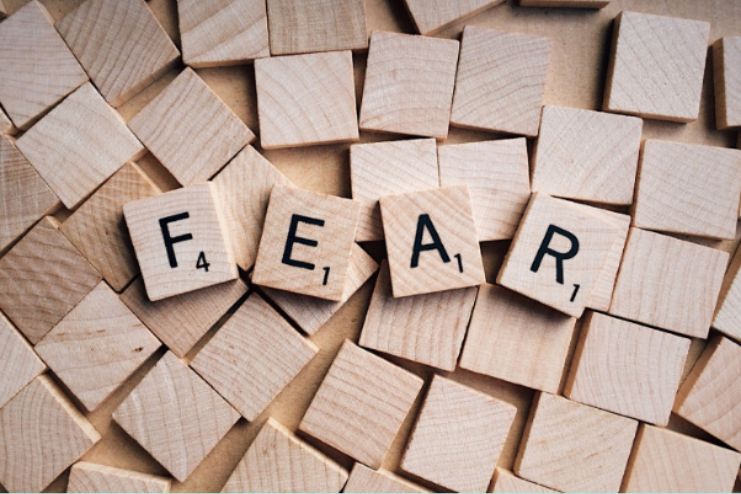
If you suddenly find yourself troubled by things that once seemed trivial, it may be time for self-reflection. Consider whether your fears are rational or if they stem from deeper concerns. When these fears begin to disrupt your daily life, they may indicate a phobia—an intense and often irrational fear of specific objects, animals, or situations.
Sometimes, a person may not realize they have a phobia until they encounter the triggering situation. For example, someone with acrophobia (fear of heights) may not be aware of it until they find themselves on the edge of a cliff. If such fears persist and negatively impact mental well-being, they could be signs of an anxiety disorder that may require attention and management.
4. Persistent Muscle Tension:

Muscle tension, in this case, means something more than a typical backache or a stomach cramp. It describes the slight, steady symptoms of anxiety, like fidgeting, clenching fists, or tightening the jaw. All these signs show that the body is trying to cope with stress and anxiety.
The tricky part is that people often don’t realize these behaviors, as they gradually become ingrained in their daily lives. It’s only when the tension becomes overwhelming that they finally acknowledge the issue. Recognizing the underlying anxiety disorder is crucial to addressing it with a gentle and supportive approach, ensuring that individuals receive the understanding and care they need.
5. Impacts Digestion:

Anxiety disorders not just affect our physical and mental well-being, but also the physiological processes in our bodies. Anxiety generally starts with the brain but reaches far wider, impacting your health in many ways.
One of the most common symptoms of generalized anxiety disorder (GAD) is its impact on digestion. Anxiety can lead to various digestive issues including irritable bowel syndrome, bloating, and an upset stomach. When these symptoms occur together, the body feels drained and fatigued.
Read More: How To Boost Your Digestion.
6. Stage Fright:

Big performances might make you nervous, but a constant fear of facing people on the stage is a sign of anxiety disorder. This social anxiety is sometimes unmanageable and might make you feel overwhelmed.
A persistent feeling of ‘being watched’—even when no one is actually observing you—is a key indicator of social anxiety. This heightened self-awareness can lead to a sense of constant scrutiny, triggering anxiousness and discomfort. Over time, this fear creates barriers to forming relationships, meeting new people, and engaging in social activities, often resulting in isolation. Recognizing these signs early can help in managing social anxiety effectively and improving overall well-being.
7. Self Consciousness:

There might be several times that you visited the mall or any public place and felt judged. While the reality was you were extremely self-conscious. In this disorder, you have a constant feeling of being under pressure and judged for your looks or behavior. If this has happened more than once, it may be a sign that you’re dealing with social anxiety disorder.
It shakes your self-esteem and closes doors to meeting new people and grabbing opportunities. Very often it feels like everyone’s focusing on you, judging your every move, though, in reality, nothing is happening. This is a clear sign of anxiety disorder that makes you uncomfortable and feel isolated.
8. Panic Attacks:
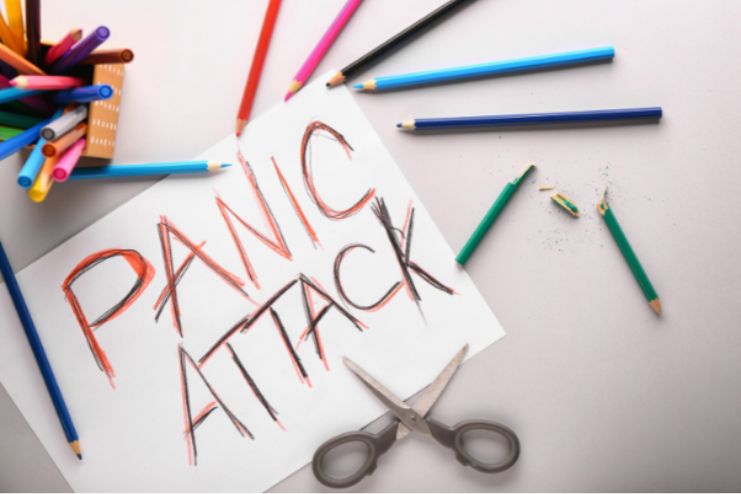
People experiencing panic attacks admit it to be terrifying. They suddenly feel overwhelmed by intense fear, which makes them freeze. That is what a panic attack is like. Most people feel paralyzed in their sense of helplessness, breathe very rapidly, and feel as if they are gasping for breath. In some, it can even cause numbness and dizziness, adding to the overwhelming fear.
However, not all panic attack victims suffer from an anxiety disorder. Others have a condition known as panic disorder, which can result in episodes of intense panic and anxiety, making the person feel frantic and out of control.
Read More: 12 Ways To Stop Panic Attacks – Know How To Tame The Demons Inside.
9. Recurrence of Events:

Flashbacks are a common part of daily life, but when they become frequent, persistent, and overwhelming—leaving you breathless and gasping for air—they may signal an underlying anxiety disorder. Almost everyone experiences moments that leave them numb and fearful, yet when these recollections begin to interfere with daily functioning, they can act as warning signs.
Reconciling past traumatic events often serves as an internal alarm system, triggering a range of anxiety disorders. It is essential to distinguish between typical memories and those that cause distress. When an experience repeatedly falls into the latter category, it may indicate symptoms of Post-Traumatic Stress Disorder (PTSD), requiring attention and professional support.
10. Perfectionism:

Being perfect is admirable. However, when perfectionism is taken too far, it can be a sign of some trouble brewing. If you find yourself constantly fixating on even the smallest details, it may indicate that the obsessive side of your personality is taking control. Obsessive compulsive disorder (OCD) is a subtle yet impactful anxiety disorder that can significantly impact our lives negatively.
People with OCD tend to be overly critical of their work, and never satisfied with anything they do. They struggle to recognize the value in their efforts, always focusing on areas for improvement—even when further perfection is impossible. They lack happiness and fulfillment, making them feel miserable about themselves.
Read More: Why Perfectionism Is More Harmful Than You Think (And How To Overcome It).
11. Compulsive Behavior:

Obsessive-Compulsive Disorder (OCD) is not solely defined by obsessive thoughts but also by compulsive behaviors. For a diagnosis, an individual must exhibit repetitive actions—whether mental or physical—that stem from intrusive fears or anxieties.
For example, a child who insists on washing their hands twice before every meal, even after having done so just minutes earlier, maybe displaying compulsive behavior. This stems from an irrational fear of germs, despite logical reassurance. OCD often follows this pattern, where compulsions temporarily relieve anxiety but reinforce the cycle, making early recognition and intervention crucial.
12. Lack of Self-Confidence:

Lack of self-confidence often stems from repeated experiences of degradation or criticism over time. Even those who excel in their field may struggle with self-doubt, feeling that their efforts are not good enough for the world to recognize. This is a common occurrence, leading to the crippling belief of “not being good enough.”
Persistent negative thoughts of unworthiness and insignificance are key symptoms of anxiety disorders. When such thoughts invade the mind consistently, they can contribute to mental distress and low self-esteem. It is crucial to address mental health concerns without delay. If you have been feeling overlooked or experiencing any of the symptoms mentioned, you may be dealing with generalized anxiety disorder. Fortunately, with the right strategies and support, it can be effectively managed.
5 Quick Tips for Managing Anxiety Disorders:

These effective and easy tips will help you manage anxiety disorders better:
- Identify Triggers: Understanding and identifying the trigger points will help in easy treatment. You can keep a journal to track when and why anxiety flares up. This habit will help you cope better.
- Use Deep Breathing & Meditation: Practice mindfulness, meditation, or other slow breathing techniques. These will calm your nervous system and reduce anxious thoughts.
- Stay Active: Staying physically active is crucial for good mental health. Regular exercise, even short bursts of movement, can relieve stress and improve mood.
- Eat & Sleep Well: Focus on proper balanced meals for nutrition and a consistent sleep schedule. Limit processed foods, caffeine, and alcohol, as these disturb your gut health and sleep patterns.
- Get Support: If the anxiety disorder is severe and unmanageable, opt for therapy (like Cognitive Behavioral Therapy ) and join a few support groups that offer effective tools to manage the condition.
Read More: Say Goodbye To Anxiety: Transformative CBT Techniques To Regain Control.
Conclusion:
Anxiety disorders can silently disrupt your life in ways you can never imagine. These are hard to identify, but with certain peculiar symptoms and signs, you can identify the type of anxiety disorder that’s making you overwhelmed. It can be a phobia, OCD, restlessness, social anxiety, insomnia, or even poor digestion. These signs are crucial for early intervention. While anxiety is a normal response to stress, constant and severe symptoms need immediate attention.
If you are suffering from anxiety disorder, you might feel the need to address it soon. With a few tips such as relaxation techniques, proper diet and sleep, and getting support if necessary, you can win this game against the disorder.
Remember, feeling anxious is normal and so is seeking help and coping!
-
Aug 2018Written by Somapika D
-
Feb 2025Edited by Vaishnavi
In this Article















